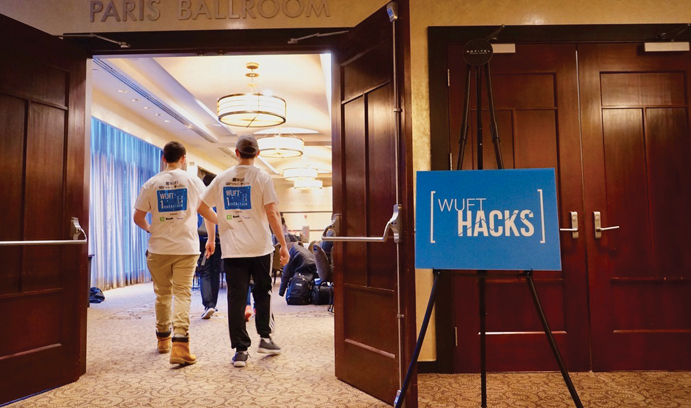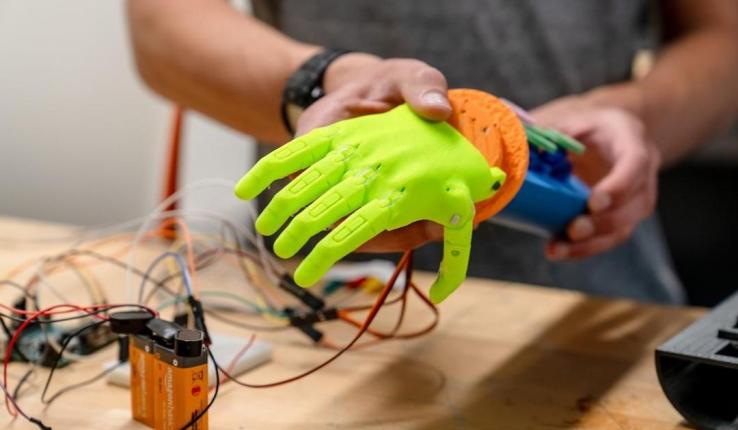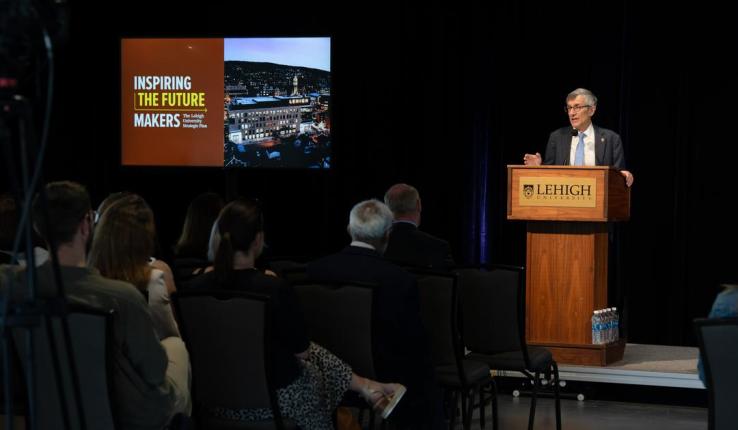Lehigh Shines at FinTech

Lehigh teams collectively win $7,500 in FinTech intercollegiate hackathon.
Given Lehigh’s interdisciplinary collaborations in business and computer science, Dean Zimberg ’20 was confident the Lehigh FinTech Group (LFT) he founded in fall 2017 would enable students to not only compete in hackathons against other prestigious universities, but win. He was right.
Lehigh students won five out of eight awards, totaling $7,500 in prizes, at WUFT Hacks 2018, the University of Pennsylvania’s first FinTech intercollegiate hackathon. It was also the Lehigh FinTech Group’s first intercollegiate event.
LFT co-sponsored the 36-hour event with the Wharton Undergraduate FinTech Group (WUFT) and Def Hacks Inc., a nonprofit hackathon organization. Students from Columbia, Cornell, Harvard and New York University also participated.
Despite Zimberg’s optimism, Integrated Business and Engineering (IBE) student Benjamin Holmes ’20 was uncertain how his team would do. “I thought the probability of winning was slim because of the strong and diverse competition,” said Holmes, a first-place winner, “but our determination showed Lehigh’s ability to tackle any problem.”
Zimberg, also an IBE student, created the student-run Lehigh FinTech Group in partnership with the Martindale Center for the Study of Private Enterprise after seeing similar clubs emerge at colleges across the nation. Zimberg said he wanted to help demystify FinTech for students through hackathons, team projects, seminars and networking conferences.
The College of Business and Economics also has developed a new FinTech minor to better prepare students for the business world after graduation.
At WUFT Hacks 2018, teams chose between two prompts presented by TD Bank, the event’s main sponsor. The first prompt focused on peer-to-peer money movement, while the second centered on improving employees’ conversations with customers. TD Bank employees, along with those of other sponsors such as Virtusa and Tradeweb, were in attendance to mentor the students.
Holmes’ team chose the second prompt and felt that its idea could improve customer relations at any retail bank. The team created an in-depth framework for an employee-side interface. Since the team had limited programming experience, it placed most of its attention on the presentation.
“[The hackathon] wasn’t heavily weighted on programming,” said Holmes. “It was more about communicating an idea instead of the programming itself.”
Zimberg said Lehigh’s business students were key to the university’s overall success, mainly because they understood what the companies were looking for and outperformed competing teams through their presentations.
Professor Todd Watkins, executive director of the Martindale Center and the group’s faculty adviser, said Lehigh’s involvement in the hackathon “was remarkable.” He said the students’ commitment and success not only demonstrates their passion for FinTech but also Lehigh’s strengths in interdisciplinary approaches to innovation.
Story by: Madison Hoff '19
Posted on:




